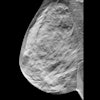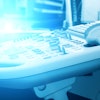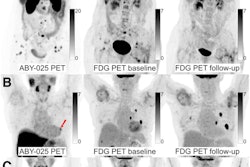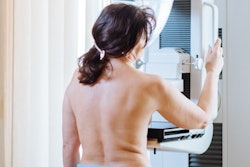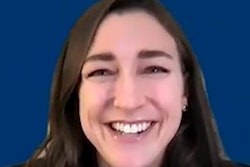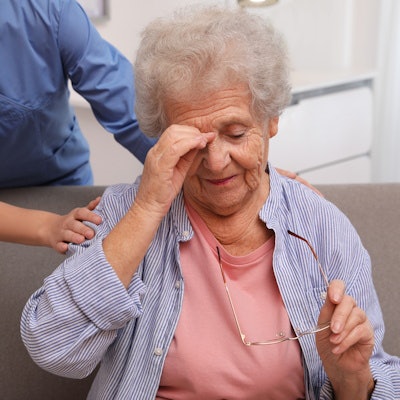
Elderly women who undergo routine screening mammography for breast cancer are more at risk of overdiagnosis, according to results published August 7 in the Annals of Internal Medicine.
Researchers led by Ilana Richman, MD, from Yale University in New Haven, CT, found that about six out of every 100 women in the age range of 70 to 74 who receive regular mammography screening are diagnosed with breast cancer, but nearly one in three of these cases "would likely not cause any symptoms or harm."
"I think these findings underscore the idea that there is no one-size-fits-all approach to screening older women," Richman told AuntMinnie.com. "For those at an advanced age or with limited life expectancy, the risk of overdiagnosis is higher and it may not make sense to continue screening. But for younger women or healthier women, the risk is lower, and benefits of screening may outweigh risks."
Older women still undergo routine breast cancer screening, but debate persists among radiologists as to the benefits of continued screening, including when it comes to women with potential comorbidities. Results presented in 2023 suggested that elderly women with shorter life expectancies may not need to have routine breast cancer screening. Those who say routine screening is not necessary in this population cite overdiagnosis via false-positive cases as the primary reason.
Richman and colleagues sought to explore the risk for overdiagnosis tied to screening mammography among older women by evaluating the difference in cumulative incidence of breast cancer associated with continuing screening or not in the next scheduled interval.
The researchers included data from 54,635 women who had no previous history of breast cancer and had recently undergone screening. They stratified their analysis by age in the following categories: 70 to 74 years, 75 to 84 years, and 85 years and older.
The team found that screening identified more breast cancers across all age groups included in the analysis.
| Adjusted cumulative incidence of breast cancer cases among age groups | ||
| Age group | Unscreened women | Screened women |
| 70 to 74 years | 4.2 per 100 | 6.1 per 100 |
| 75 to 84 years | 2.6 per 100 | 4.9 per 100 |
| 85 years and older | 1.3 per 100 | 2.8 per 100 |
But the team reported that an estimated 31% of these breast cancer cases among screened women were "potentially" overdiagnosed in the age 70- to 74-year cohort, 47% in the 75- to 84-year cohort, and up to 54% in the 85 years and older cohort. This finding "underscores the idea that overdiagnosis can occur with invasive breast cancer, especially when life expectancy is limited," Richman and colleagues noted.
The study authors suggested that based on their results, overdiagnosis should be "explicitly" considered when making screening decisions, along with considering the benefits of screening.
"Given that risk of overdiagnosis varies by patient characteristics, it's important to make sure patients understand their personal risk and that patients have the opportunity to engage in shared decision-making with their doctors," Richman told AuntMinnie.com.
In an accompanying editorial, Otis Brawley, MD, and colleague Rohan Ramalingam, both from Johns Hopkins University in Baltimore, suggested that one potential cause of the overdiagnosis conundrum is trying to define what exactly it is.
"The pathologic definition used today was developed in the mid-19th century using biopsy and a light microscope," they wrote. "We need to move to a 21st-century definition encompassing both the biopsy and pathologic appearance as well as genomics. The 21st-century definition of cancer will recognize that breast cancer is not one entity but many distinct diseases with potentially different patterns of behavior calling for different treatments and, sometimes, no treatment."
The full study can be found here.


